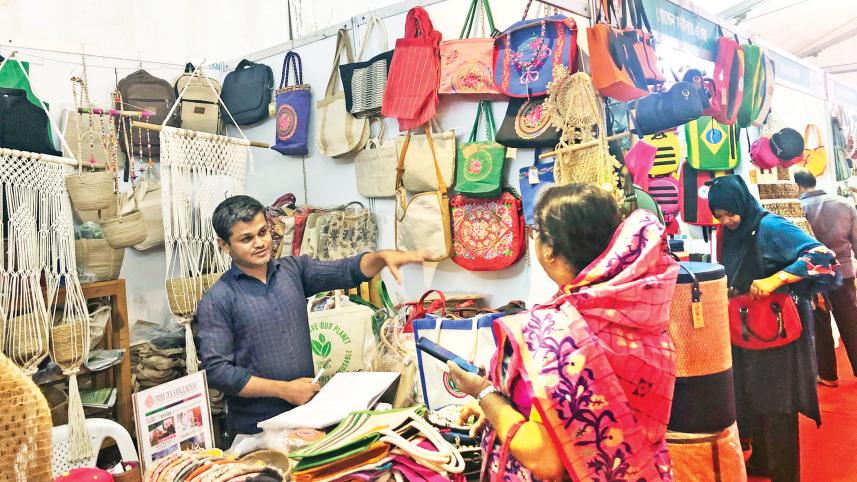SMEs need strong marketing, branding: experts

Despite contributing about 28 percent to Bangladesh's GDP, the potential of cottage, micro, small and medium enterprises (CMSMEs) remains constrained by limited finance, poor infrastructure, weak policy support, restricted market access, and slow adoption of technology, industry leaders said yesterday.
Speaking at a seminar on branding and marketing challenges for the sector at the Dhaka Chamber of Commerce and Industry, its president Taskeen Ahmed said nearly 90 percent of Bangladesh's industrial sector consists of CMSMEs. The sector employs about 1.18 crore people.
However, he noted that the additional tariffs imposed recently by the United States on Bangladeshi exports, particularly on readymade garments, pose a significant risk for the sector as they will lead to higher production and export costs.
To stay competitive, local entrepreneurs must embrace innovation, improve efficiency, and move away from outdated practices, he said. "We need to embrace technology at a faster pace and leave old-school traditional thinking and mindset, as we want to have more development for our country."
Stating that complex import-export rules, high costs, and weak global competitiveness also hold back the sector, Ahmed urged stronger support through certification, compliance, training, and incentives for sustainable technology adoption.
He stressed improving product quality and branding, expanding exports with government support, developing clusters and a CMSME database, attracting foreign investment, and supporting startups.
Also speaking at the event, Industries Secretary Md Obaidur Rahman said the absence of strong national brands has prevented Bangladesh from achieving its export potential.
The government will revise the SME and industry policies to include new and emerging business sectors, he added.
He emphasised improving product quality, branding, and IPR protection, adding that the Ministry of Industries is working to boost GI product exports.
Md Saiful Islam, chairman of the Bangladesh Small and Cottage Industries Corporation, said the agency is supporting entrepreneurs through industrial parks, low-cost finance, and training, while working to exempt holding taxes in its parks.
He urged expanding Bangladeshi products on global e-commerce platforms, improving packaging and labeling, and increasing international certifications to boost exports.
Mohammad Hasan Arif, vice-chairman of the Export Promotion Bureau (EPB), said consumer preferences are key to branding, stressing stronger public-private coordination.
In order to expand the presence of Bangladeshi products in the global market, he said, "First, we need to change the mindset of our local consumers."
He said the EPB will set up an Export Ecosystem Platform and a CMSME Help Desk, where representatives from relevant government agencies will be designated as focal points.
The agency will also organise training to upskill workers and facilitate Bangladeshi participation in international fairs, including one in Brazil next year, he added.
Muhammad Mustafizur Rahman, director (current charge) of the SME & Special Programmes Department at Bangladesh Bank, pointed to the importance of product logos, consumer-focused design, and promotions.
He noted that entrepreneurs can now access Tk 5 lakh collateral-free loans, with 12 percent of SME loans already disbursed without collateral by December last year.
Shamim Ahmed, president of the Bangladesh Plastic Goods Manufacturers and Exporters Association, highlighted the necessity of designing products by considering the tastes, culture, and environment of people in specific geographical regions.
Md Shafat Kadir, founder and CEO of Hat Bakso, said although reciprocal tariffs recently imposed by the United States have increased product costs, effective branding and marketing can open new export opportunities.
He stressed the need for standardised, attractive packaging, along with proper branding models and effective marketing to boost global competitiveness.



 For all latest news, follow The Daily Star's Google News channel.
For all latest news, follow The Daily Star's Google News channel.